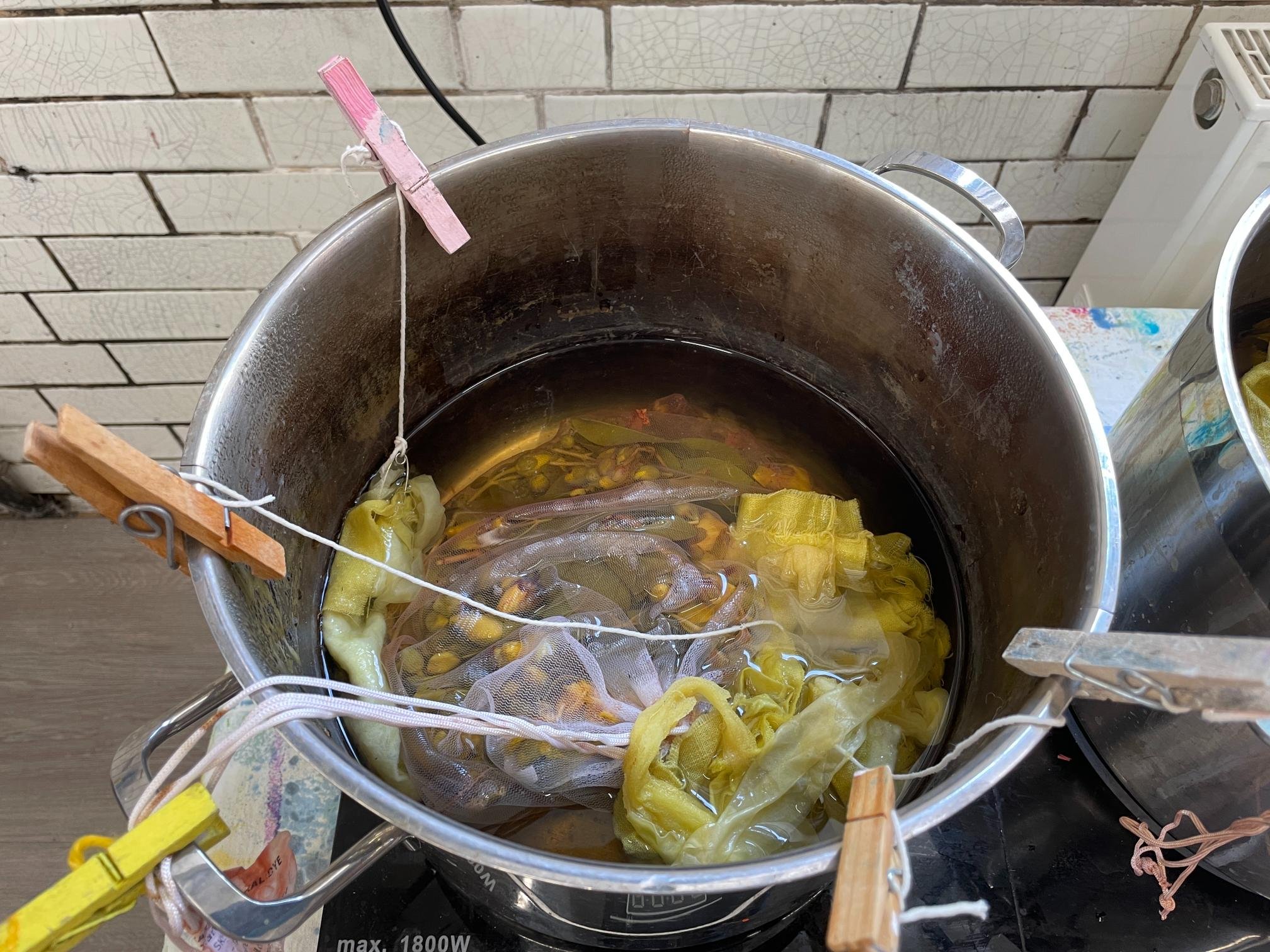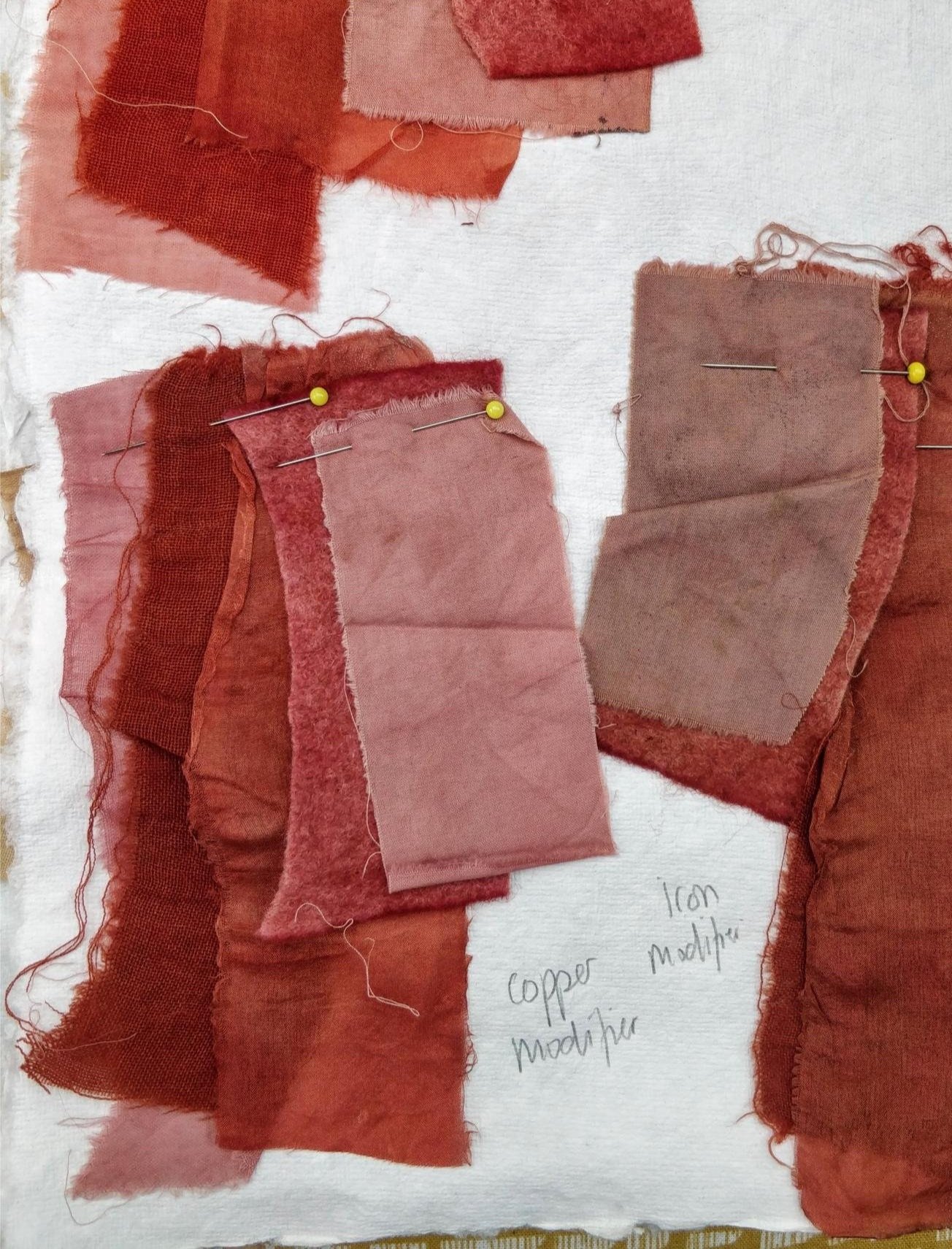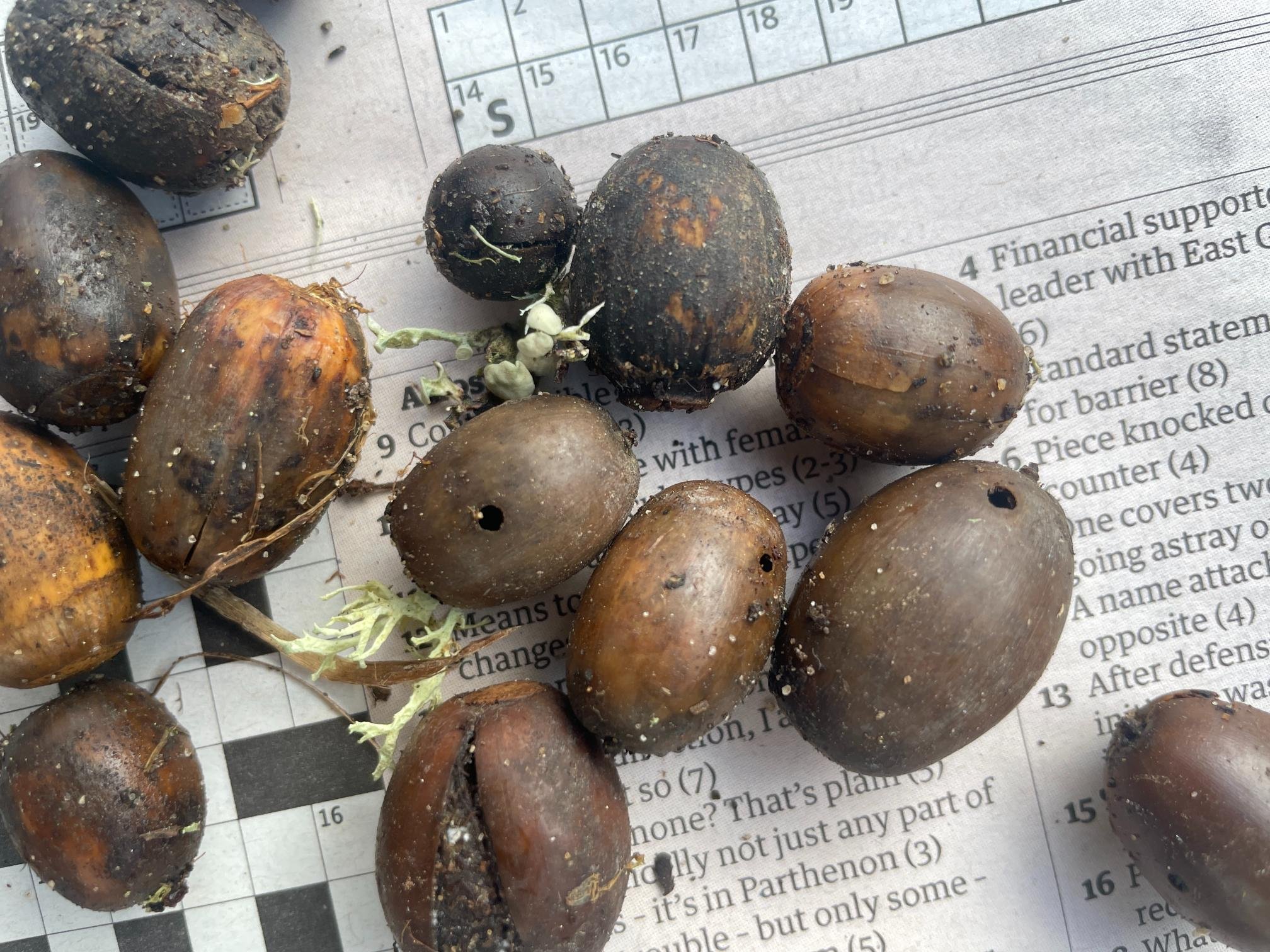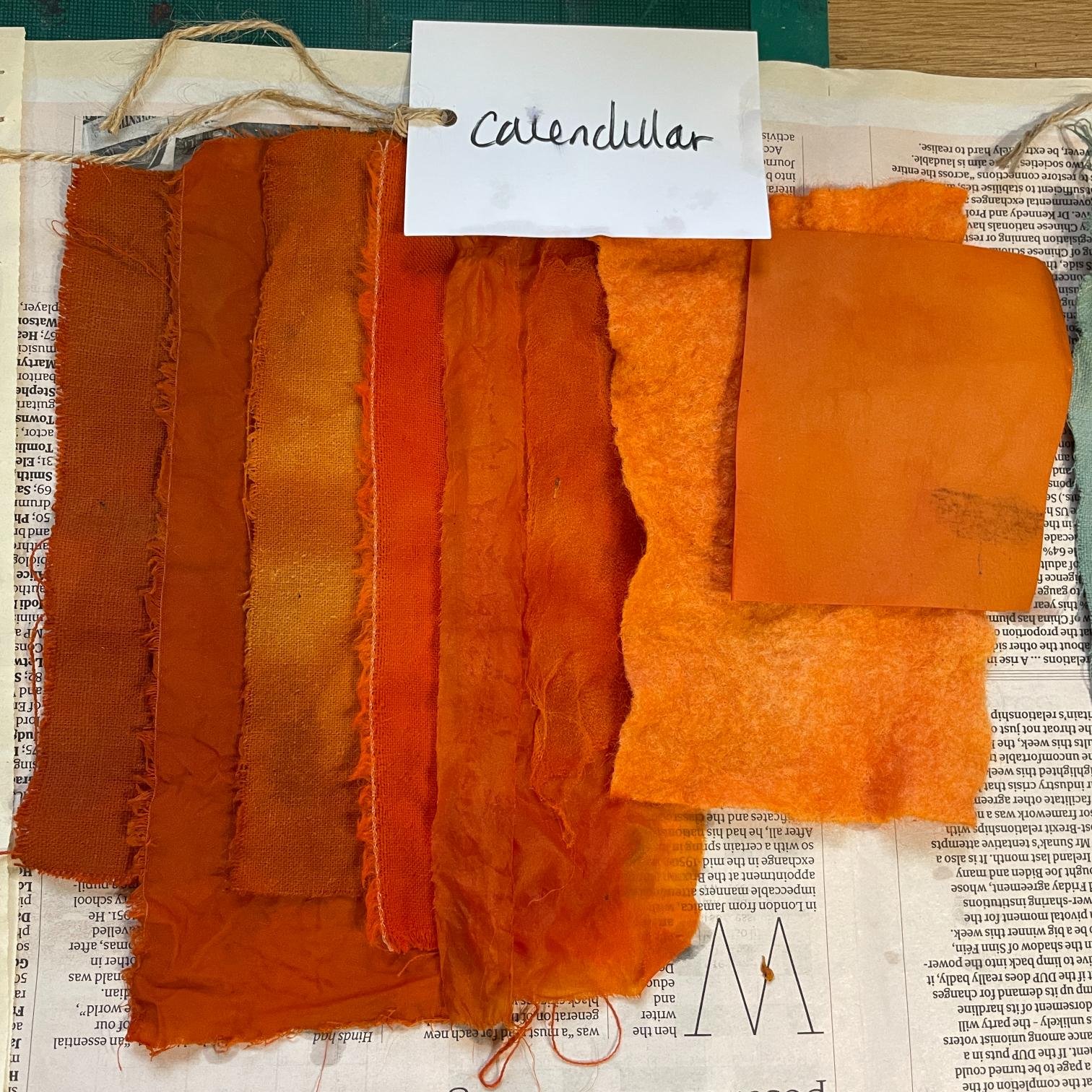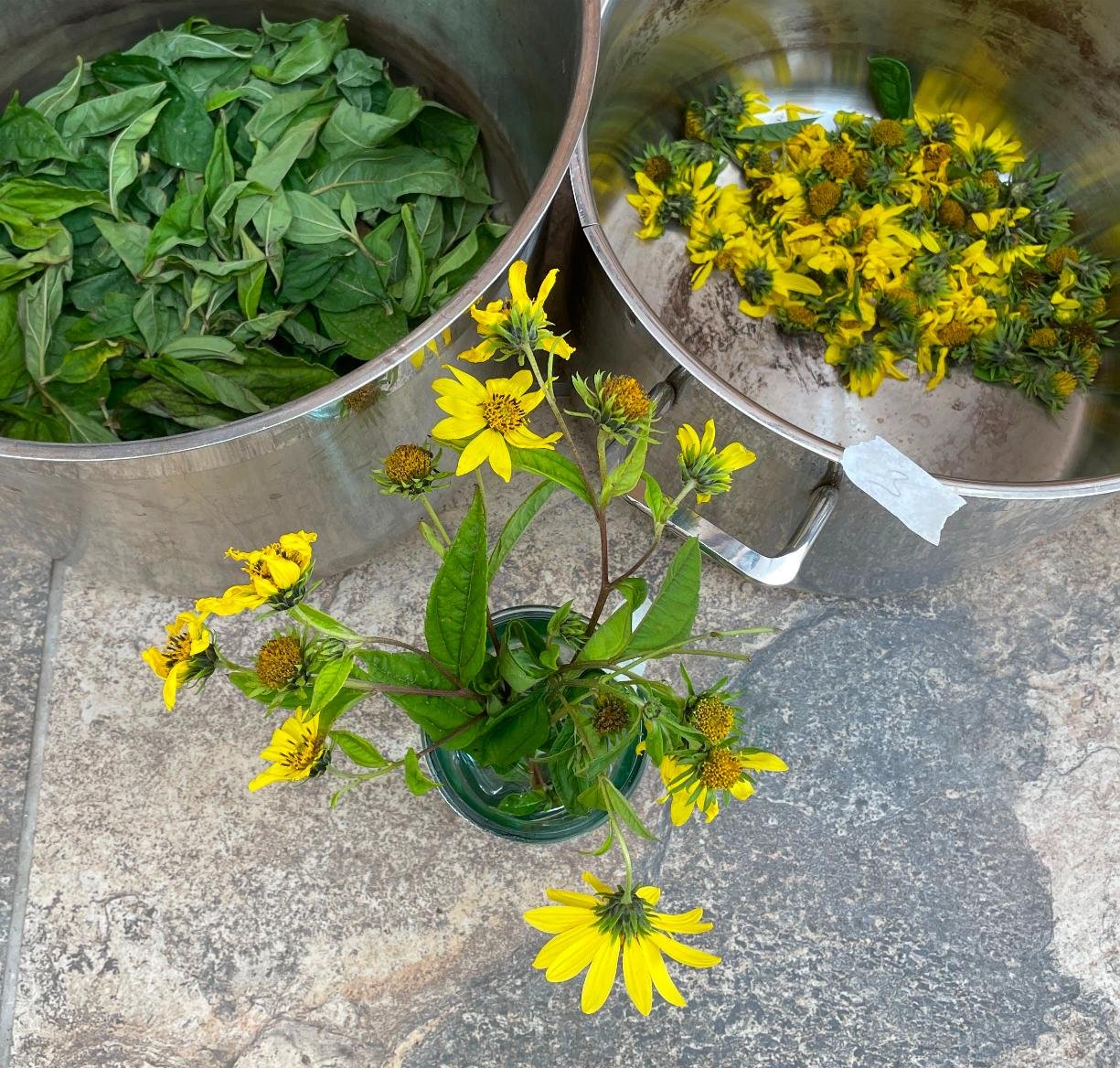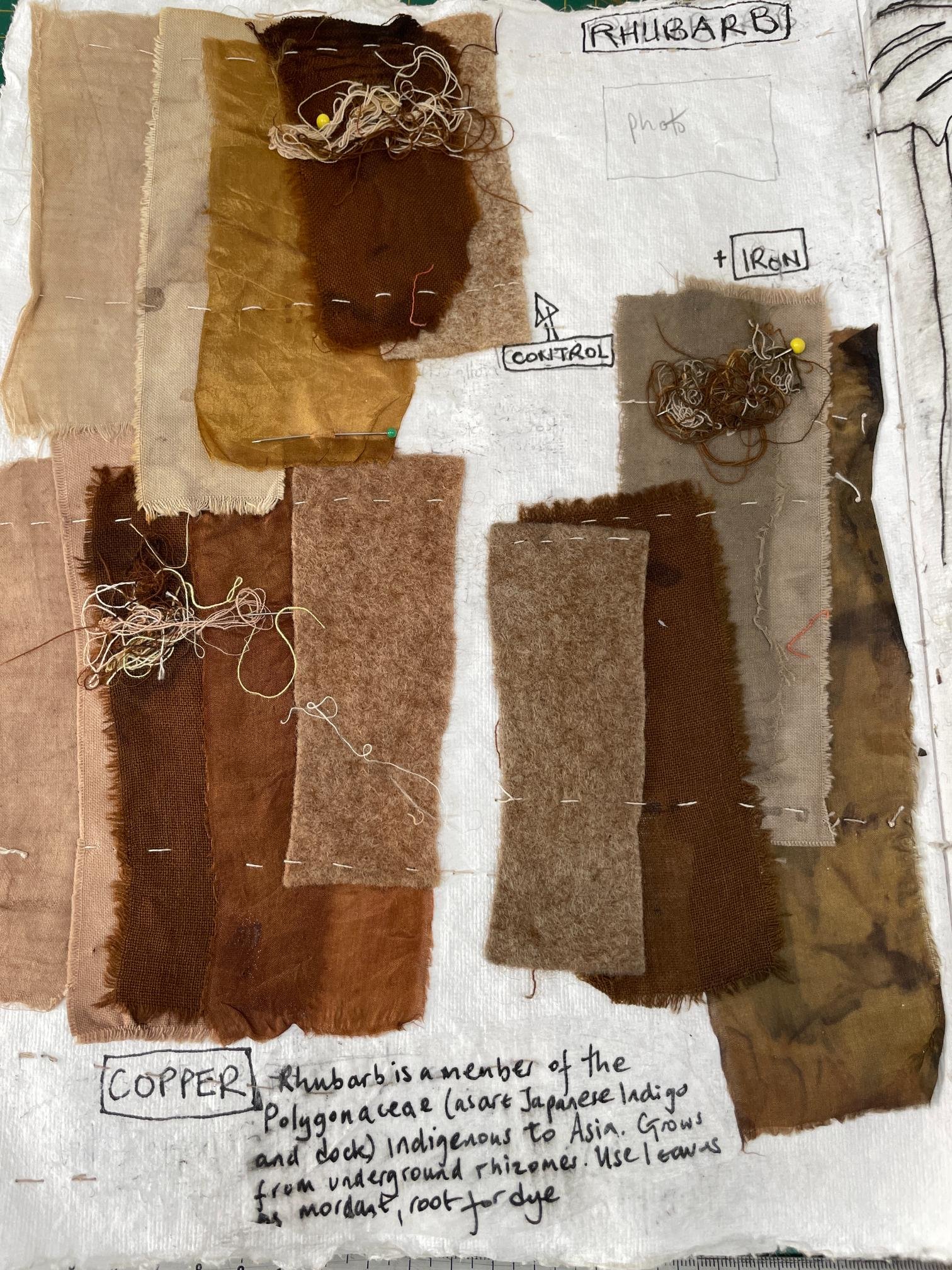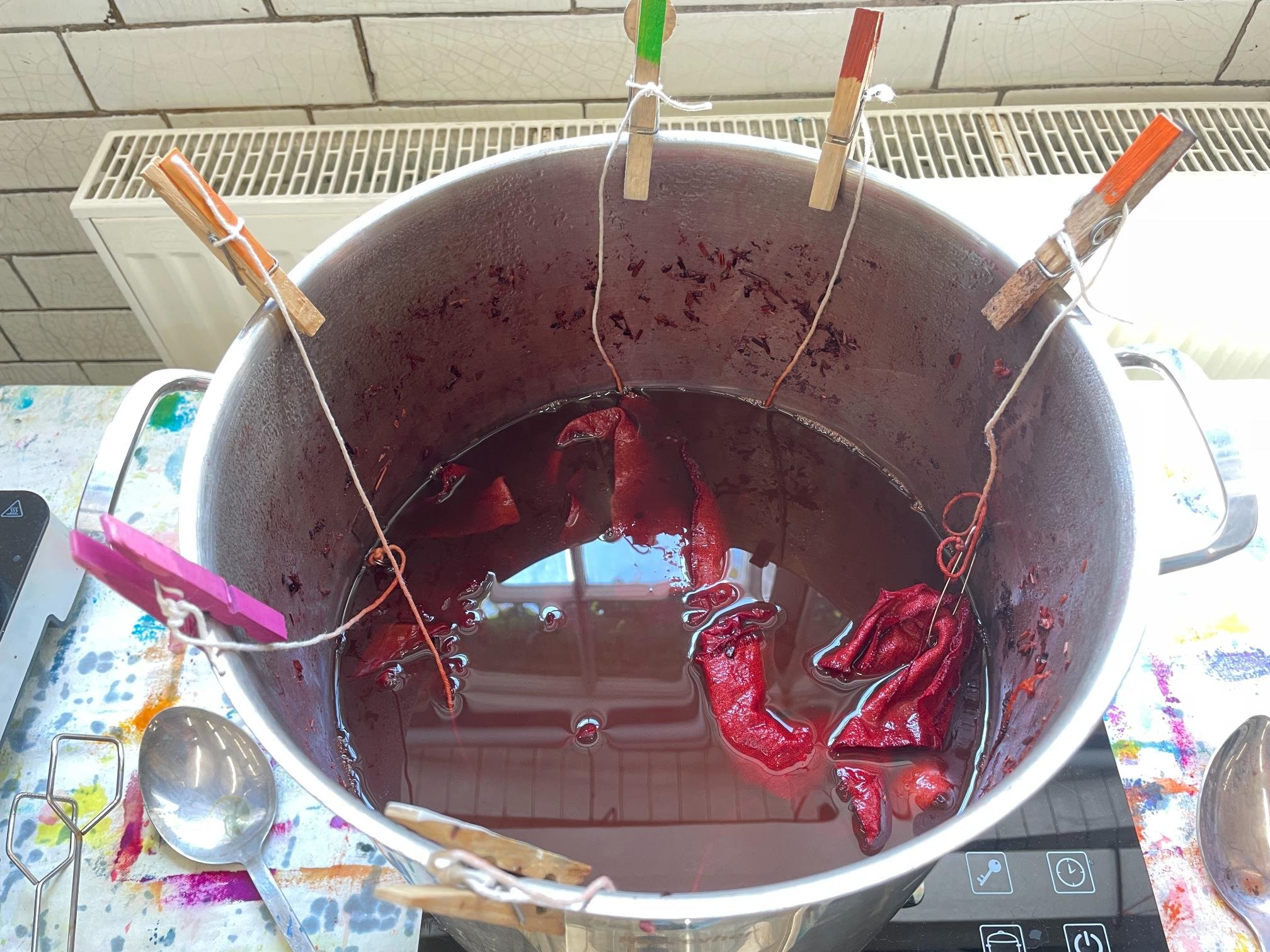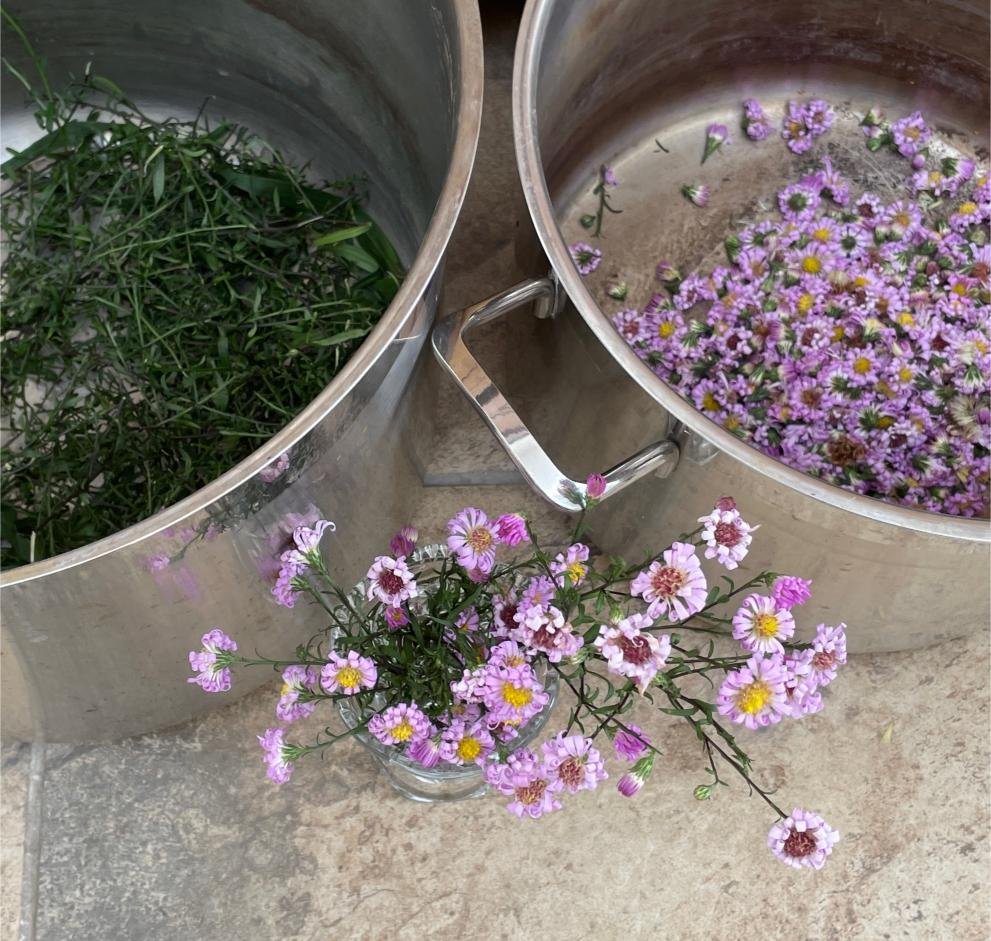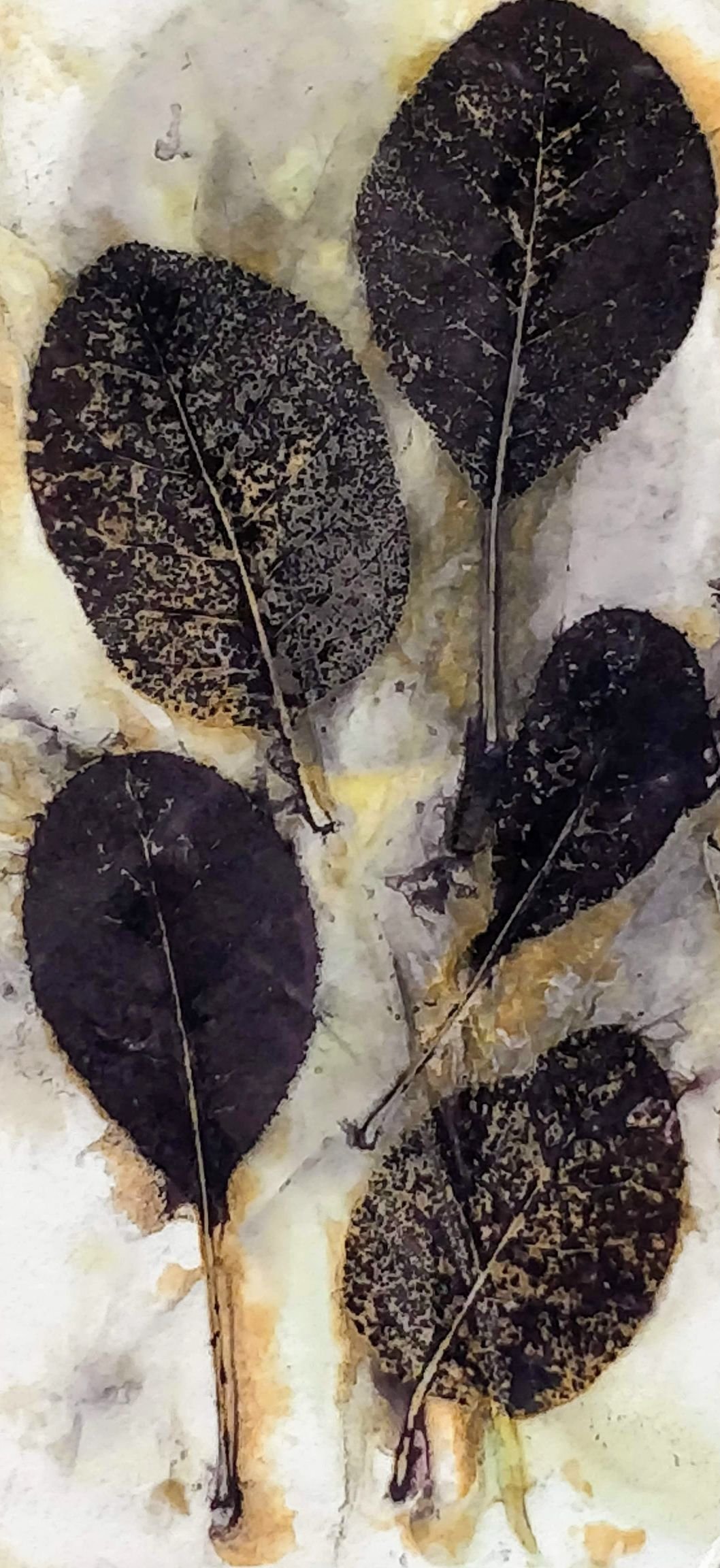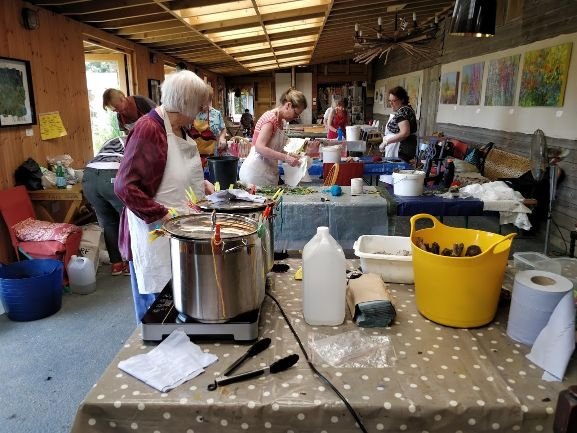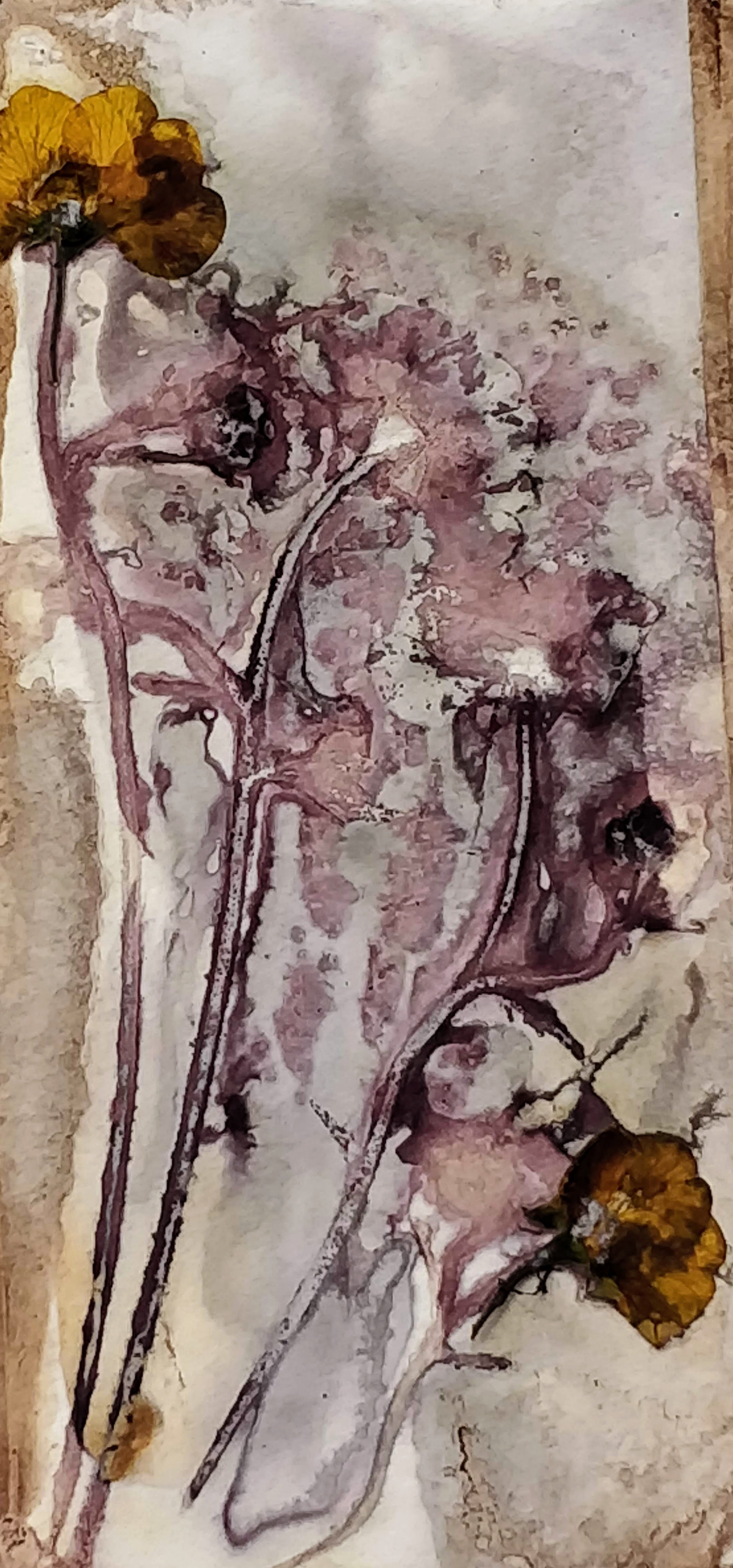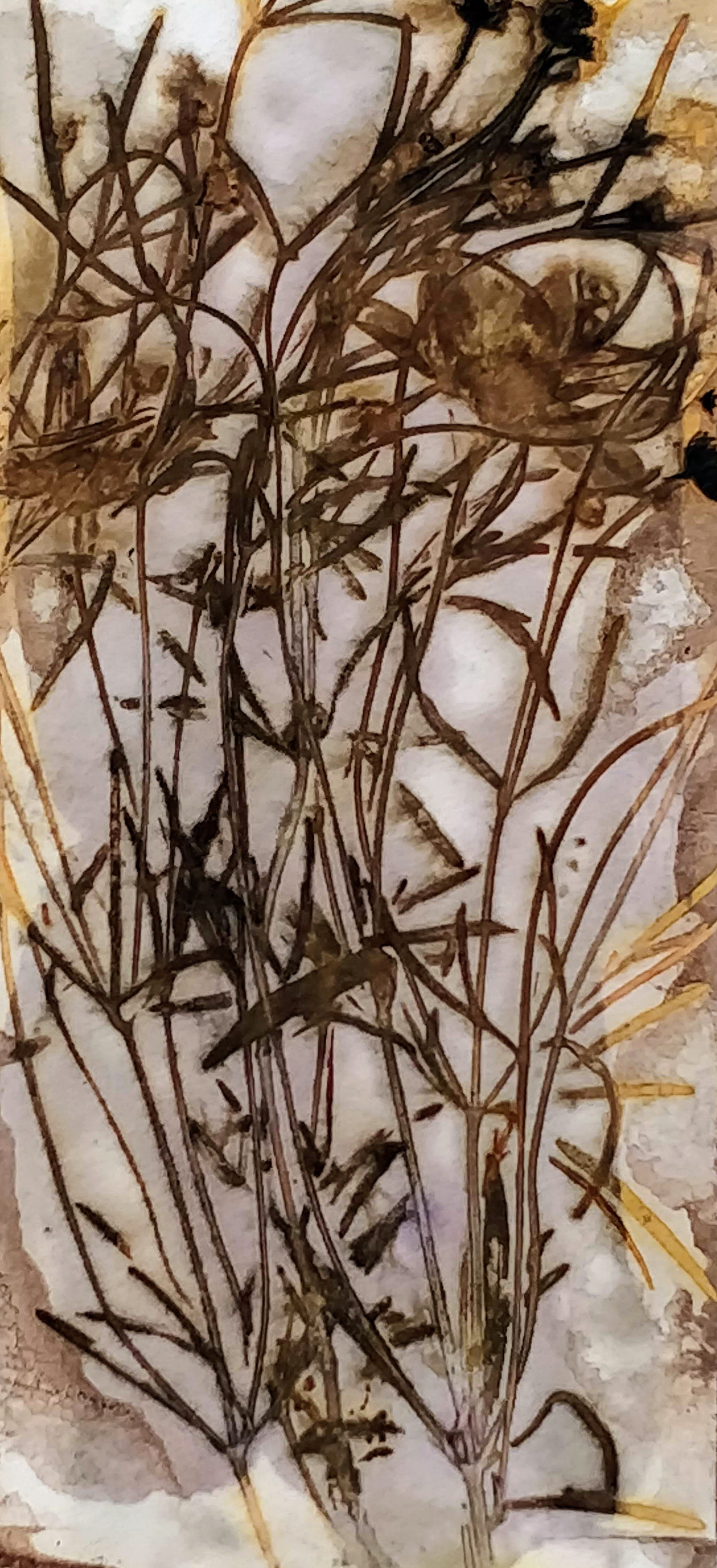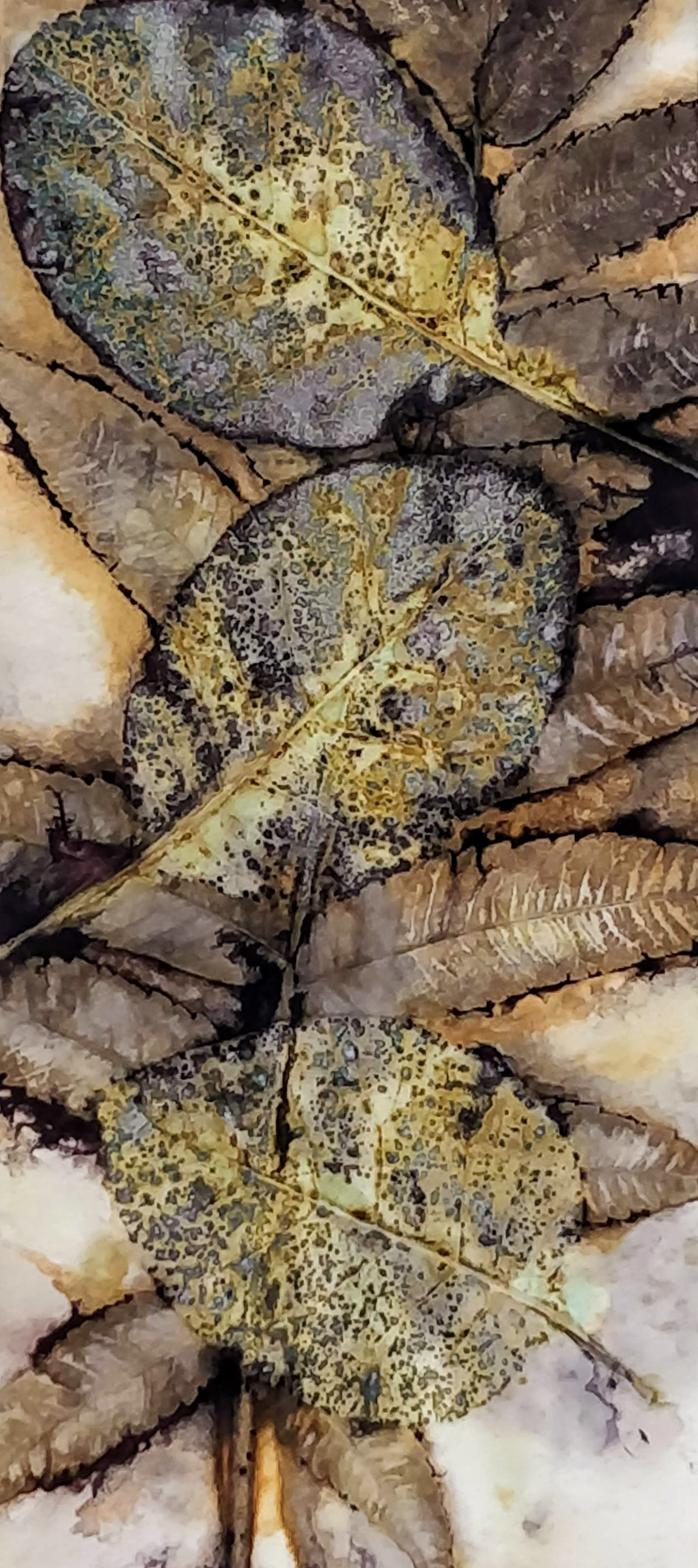Sussex Prairies
17th & 18th July - 2 days
9.15 am – 2 pm
Cost £190 (including all materials)
Explore the breadth and variation of colour that can be extracted from local plants using traditional techniques to dye fabric samples. Whilst working in a group to create and share dye baths, you will learn about how to mordant fabric so that it will ‘catch’ and ‘fix’ to the fibres and be light-fast.
By the end of the 2-day course, you will know the basic principles and practice of natural dyeing. Spaces are limited to ensure you receive plenty of space and guidance. This course is suitable for beginners and those who have little experience and would like some additional support and practice. All necessary dyestuffs and fabrics for dyeing samples are included in the course price. You will be introduced to solar dyeing, dyeing with heat, and slow dyeing practices whilst dyeing a range of small samples of cotton, silk, and wool fabric. In addition, you will practice modifying your initial dye samples to extend the original colours and shades. Working in a group you will create dye baths and record your findings throughout the day so that you have reference notes and know how to extend your exploration at home. I will send you comprehensive course notes after the course for your reference.
As an additional and optional extra some course members may wish to dye a pre-mordanted silk scarf blank, these will be available to purchase on the day at £15 or £20 depending on the quality of silk selected.
On this course, I will supply materials, including:
Plant and dye reference books, paper, and pens for the documentation of samples; dye pots and other dye equipment, disposable gloves, mordants, dyestuffs, and modifiers. Cotton, Silk, and wool for dyeing. If you wish, as an optional extra, I will have ‘prepared for dye’ silk scarf blanks available at £15-20.
Please wear clothes suitable for messy work. and bring with you an apron, a large, repurposed glass jar with a lid (to take 1pint or ½ litre volume) Your rubber gloves if you prefer to my disposable ones provided. Stapler, pencil/pen to fix and record the samples on paper. Notebook, pencil (Amanda will send you detailed presentation notes after the course). 2-3 poly bags (carrier size) or plastic sheets to wrap and transport damp samples.

